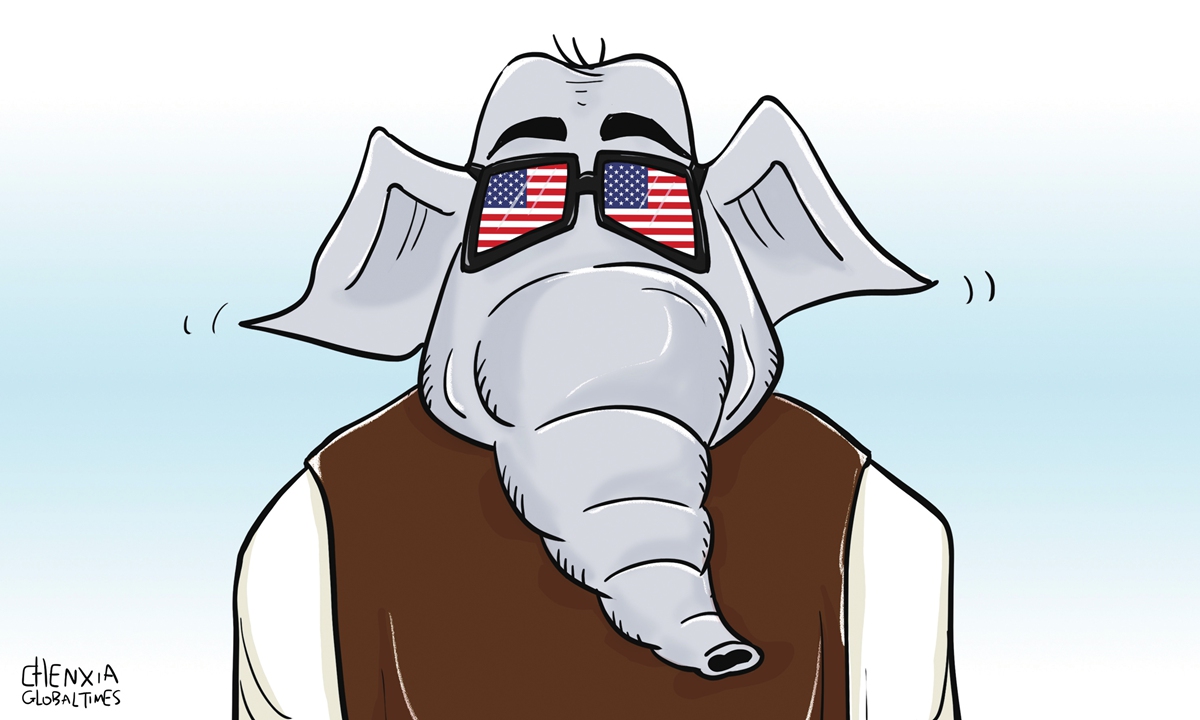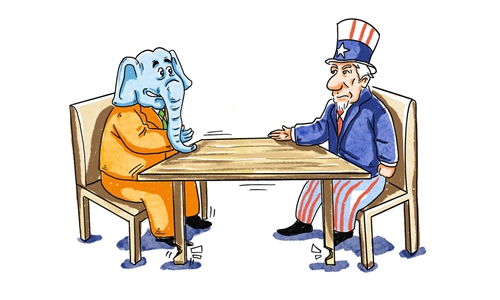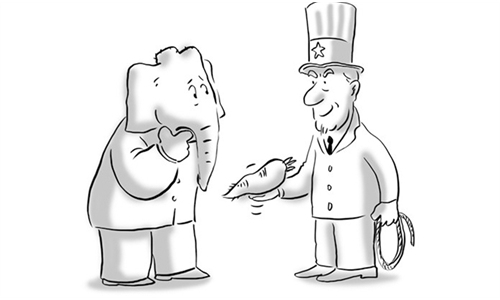After Afghanistan setback, can Modi's visit bridge trust deficit between India, US?

India-US relations Illustration: Chen Xia/GT
Indian Prime Minister Narendra Modi is expected to visit the US in late September, according to Indian media reports. It is Modi's first overseas visit in about six months, and the first trip to the US since President Joe Biden took office. Against the backdrop of continuing COVID-19 pandemic in both the US and India, Modi's visit at this time signals that he hopes the India-US ties to be closer and the bilateral cooperation can be ramped up.
Even though the agenda of the visit has not been finalized, some Indian media outlets, such as the Mint, anticipate that the two sides could talk about "issues of common concern like China." This does not come as a surprise. Dealing with the challenge from China is a common concern of the US and India. In fact, New Delhi and Washington are moving closer because of China. Other potential discussions might pertain to the Quad and Indo-Pacific Strategy. These, too, are aimed to counter the so-called China threat.
"With the situation in Afghanistan unfolding rapidly, Modi's visit is significant," remarked the Indian Express. Such a perspective makes sense. The Taliban's seizure of power was a vital setback for both the US and India. There is a Chinese saying that goes "Those who have the same illness sympathize with each other." This can be used to describe the situation the US and India are currently encountering with the situation in Afghanistan. After the US' hasty withdrawal, some analysts say India is the biggest loser. Both New Delhi and Washington seem to have lost their influence over Afghanistan after the Taliban seized power. In this context, discussions over coordinating the Afghan situation will definitely become a hot topic.
India has a great power dream. The Modi government believes the US is the most reliable partner to help it realize the dream. Despite highlighting diplomatic independence, New Delhi is leaning heavily toward Washington.
There are voices in India saying that India-US bilateral relations are at an all-time high. However, certain moves by the US have reminded India of the "trust deficit" between the two countries. For example, The Indian Express published an article in April indicating that some practices of the US actually impinge on India's strategic autonomy. As such, India needs to be astute and cautious and not become dependent.
India and the US are moving closer politically. But there are still different voices within India. In Indian media and strategic circles, there is a historical sense of wariness and guard against the US.
Since the beginning of this year, certain moves by Washington have disappointed many Indians. For example, the US responded slowly to help India when the Asian country's coronavirus cases were rising exponentially. In August, the Biden administration conveyed to New Delhi that it is not interested in a free trade agreement with India. The latter had expectations that Washington would deliver on this.
This is because the US has its own interests to defend. All these have deepened the concerns of India's skeptical public. Furthermore, with the irresponsible withdrawal from Afghanistan, the US obviously did not consider the feelings of its allies and partners, including India. This rash move also triggered great challenges and difficulties for India to safeguard its own vested interests in Afghanistan.
Indian strategic elites claim that their country sticks to the path of strategic autonomy and this won't be affected by deepening ties with the US. Such rhetoric can hardly hold water nowadays. India needs the US more than the US needs India. The more India relies on the US, the fewer strategic initiatives it will have. The US will not allow any of its allies or partners to have an equal footing with it.
In addition, relations between Russia and the US have become more and more confrontational with many irreconcilable conflicts. Moscow is also dissatisfied with New Delhi's approach toward the Indo-Pacific region. A closer relationship between India and the US is creating divergence between India and Russia.
The author is director of the research department at the National Strategy Institute at Tsinghua University. opinion@globaltimes.com.cn


